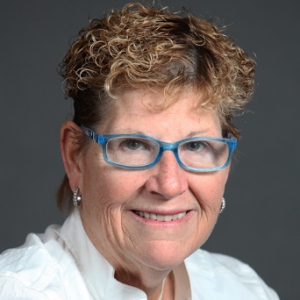When a patient hears that their case will be taken to the tumor board/MDC (multidisciplinary conference), many diverse thoughts and emotions are evoked.
The underlying constant is fear—especially in a newly diagnosed patient who hardly has had the time to digest the fact of having cancer, let alone having several unknown and unseen people deciding a treatment plan. The patient whose disease has recurred or who is not benefiting from the current treatment is also prone to being filled with a great deal of free-floating trepidation about “their case being presented to the Board,” thinking this presentation to a “special team” denotes a grim scenario.1
For nurse navigators, this is a valuable opportunity to recognize our patient’s fears, as well as their need to feel informed and genuinely included in their care and treatment. It can also create a pivotal educational conversation in which many of the patient’s thoughts and emotions will surface. Research has shown that patients may be more open to sharing their emotions and basic needs with their oncology nurse navigator (ONN) than with their physician.2
We have seen that personalizing education can give each patient a sense of distinctiveness, thus empowering them to feel a sense of personal control, which will motivate compliance going forward.3
ONNs bring a multilevel value to the tumor board. If we intervene early on, as in meeting and assessing our patients while in the hospital or during the intradiagnostic time period, we will be able to proactively identify their individual needs and barriers that may impede their ability to get and comply with treatment. This interaction allows the ONN to develop a personal bond with each patient and anticipate the ongoing services needed as well as to evaluate how they assimilate information and how much they want to know—or not know.4
It is important for patients (and their caregivers) to understand the mechanism and dynamic of the tumor board, during which a myriad of ideas, techniques, and treatment modalities are discussed by the various participants. What we bring to this diverse board is the personal representation of our patients as we understand them. This understanding should encompass the practical issues of the patient’s geographic location and their ability to travel to the hospital on a preplanned schedule. This issue can derail many treatment plans, which is frustrating to all involved, especially the patient and their family, who feel massive frustration and fear if they cannot comply with a treatment schedule.
Patients need to be presented with the concept of the tumor board as a consortium of highly skilled clinicians collaborating in real time to discuss all facets of their specific care and implement a viable and realistic treatment plan. Having to consult with the various services individually would be a much more protracted process that is most certainly not compatible with timely treatment. The synergistic approach of the tumor board allows a consensus of care planning that can be implemented in a timely manner.5
The COVID-19 constraints of needing to have virtual tumor boards have been stressful for all participants, so carefully detailed components have been implemented in most institutions, and the focus must be riveted on excellence and precision patient care planning for all involved.
The ONN has a heightened need to be fully aware of the patient’s logistic, financial, transportation, and emotional needs, as well as to be prepared to be an absolute advocate for the patient in a timely manner so that all needs can be recognized and addressed.
The patient has been informed that their case is to be presented, so their level of apprehensiveness is especially acute at this point. Following the tumor board, it is crucial for the ONN to follow up with the patient, whose anxiety level is usually quite high.
Even if, as ONNs, we cannot share details of the interaction, it is a very therapeutic approach to call each patient and help them to understand that they were represented in a very detailed manner, that their case was thoroughly discussed, and that they will be contacted soon to discuss the plan. The most important gifts we can offer our patients are recognition and acknowledgment in all their experiences as they traverse their unsettling and fear-provoking path, our awareness that they are visible and honored as individuals, and that the tumor board, with all its mystique, is one of the most important of these aspects of care.
References
- Blaseg KD, Daugherty P, Gamblin KA, eds. Oncology Nurse Navigation Delivering Patient-Centered Care Across the Continuum. Pittsburgh, PA: Oncology Nursing Society; 2014.
- Oncology Nursing Society. 2013 Oncology Nurse Core Competencies. www.ons.org/sites/default/files/ONNCompetencies_rev.pdf. 2013.
- Fillion L, Cook S, Veillette AM, et al. Professional navigation framework: elaboration and validation in a Canadian context. Oncol Nurs Forum. 2012;39:E58-E69.
- Friedman EL, Chawla N, Morris PT, et al. Assessing the development of multidisciplinary care: experience of the National Cancer Institute Community Cancer Centers Program. J Oncol Pract. 2015;11:e36-e42.
- Hong NJL, Gagliardi AR, Bronskill SE, et al. Multidisciplinary cancer conferences: exploring obstacles and facilitators to their implementation. J Oncol Pract. 2010;6:61-68.





